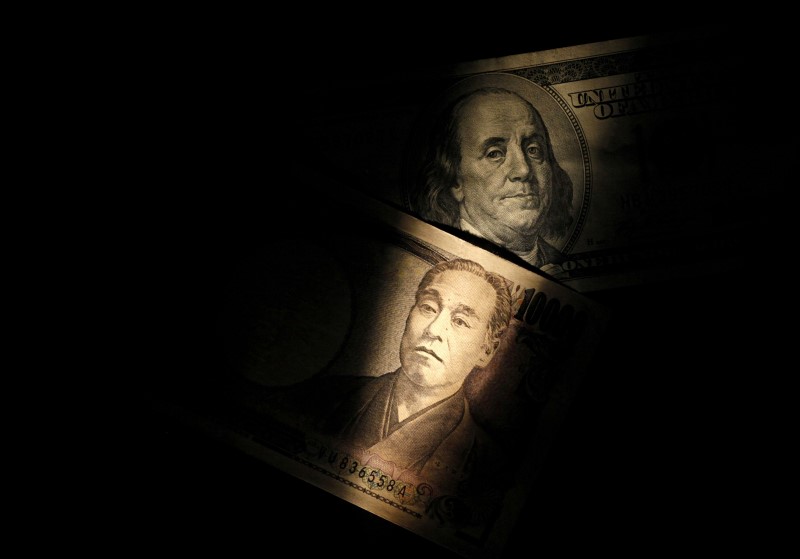By Anirban Nag
LONDON (Reuters) - The dollar eased on Thursday as some investors sold the currency before the annual global central bankers' gathering in Jackson Hole, Wyoming, where Federal Reserve Chair Janet Yellen may offer new pointers on U.S. monetary policy.
Recent hawkish statements by Fed officials including Vice Chairman Stanley Fischer and New York Fed President William Dudley have prompted some investors to raise bets that U.S. interest rates will rise sooner rather than later, and some believe Yellen could echo their signals.
Futures markets were on indicating an 21 percent chance the Fed will hike rates at its policy meeting next month and a roughly 50 percent chance of an increase in December, according to CME Group's FedWatch.
But data of late has pointed to sluggish productivity and subdued inflation, suggesting the Fed could stay on hold for longer. The uncertainty over whether Yellen would flag another rate hike or not was enough to keep most investors on the sidelines and the dollar subdued.
"Markets continue to dither as we await Yellen's speech. The Fed chair may have little to say on the near-term prospects for a rate hike, which could see the market knee-jerking one way or the other," said John Hardy, head of FX strategy at Saxo Bank.
The dollar was a tad weaker at 100.40 yen
"Dudley's hawkish comments have come as a surprise and if Yellen says the U.S. data has been good enough to continue tightening policy, then we could see dollar/yen rally towards the 102 yen mark," said Richard Falkenhall, currency strategist at SEB.
The yen could also come under pressure on growing expectations that the Bank of Japan will take additional stimulus steps at its next meeting in September, when it will review its policies against a backdrop of growing doubts that the BOJ's target of 2 percent inflation target is within reach.
Japan's government kept its assessment of the economy unchanged in August but offered a slightly more downbeat view on consumer inflation than last month, as prices slid on weak household spending and the strong yen pushed down import costs.
A Reuters poll on Thursday showed economists were split over whether the BOJ will ease policy further next month, with about 60 percent forecasting it will and 40 percent expecting no change.

The euro was higher at $1.1295